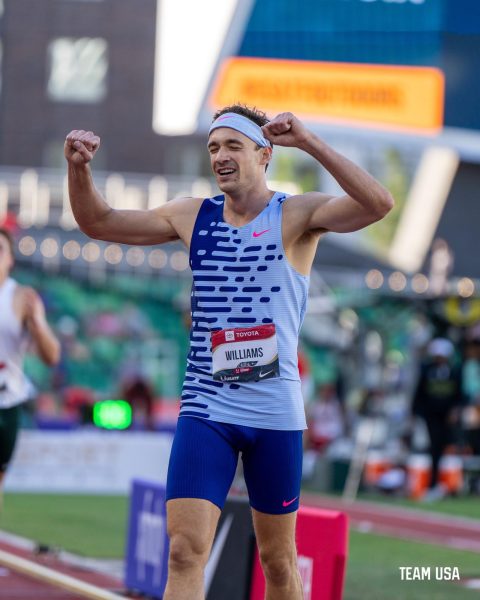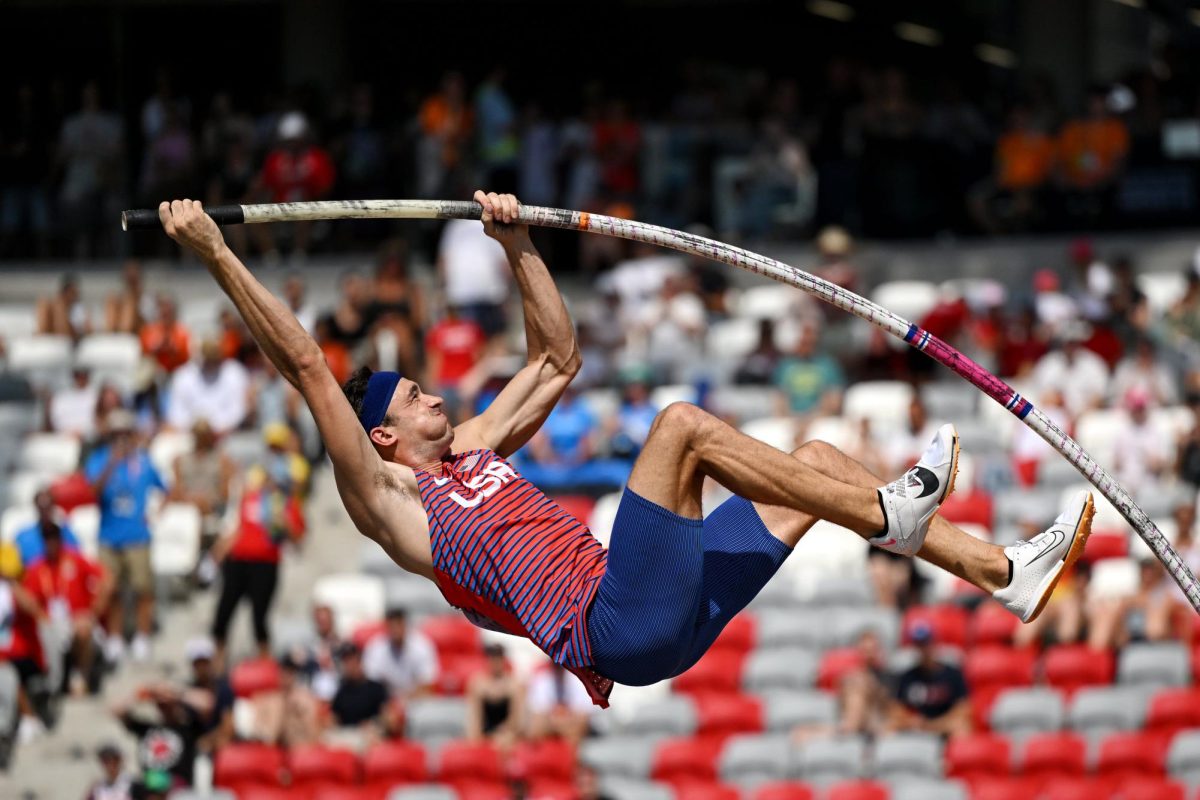The decathlon is one of the most challenging track and field competitions. It requires athletes to do 10 various events, such as springs, hurdles, shot put, long jump and pole vault. Harrison Williams qualified for the Olympic decathlon, proving proficiency and determination in the various skill sets to compete and perform in this difficult competition.
The journey began when in his freshman year of high school at Memphis University School (MUS), Williams decided to do track to stay active during the months he was not playing basketball. Unbeknownst to him, that decision shaped his entire life.
“They asked what event and I just said 200 because I didn’t actually know what the actual distances were,” Williams said. “I thought the 200 was one lap but turned out it wasn’t.”
Throughout his high school career, Williams was able to set a new record for the 300-meter hurdle and won the state championship in 2014. After proving himself to be a real athlete, Williams signed to Stanford after graduating from MUS in 2015. There, he majored in product design.
“Stanford is obviously a good school, so there’s a lot of academic pressure you have to balance while also taking track seriously,” Williams said. “So it was a challenge.”
Gradually, his speed increased and he was able to compete in Olympic team trials. In the 2024 U.S. Olympic Team Trials that were held in Eugene, Oregon, Williams placed third in the Men’s Decathlon with 8,384 points.
“I crossed the finish line with 15 [points] under and that’s when I knew I was going into the Olympics so that was just a really awesome moment,” Williams said.
Training for a national event is tough, but on an international level, the training becomes even tougher. As for Williams, he trained six days a week for 10 months, spending four hours on the track and three hours in the weight room daily. He starts off with sprints in the morning and follows that up with a shot put and then long jump.
“Training’s tough because you have to take it very seriously and make a lot of sacrifices because of the training schedule,” Williams said. “I had to miss Christmas and New Year’s. Usually I go home, but I just didn’t have time. I had to stay and train here in California.”
After Williams finished his last event in the decathlon, he was welcomed by a crowd in a stadium full of 60,000 people.
“After I finished, I was walking back under the stands and got stopped for autographs,” Williams said. “It finally sunk in that moment that I was in the Olympics.”
Compared to physical performance, an athlete’s mindset is just as important when it comes to entering a big event. Williams’ mindset before competing in his first event at the Olympics was to stay calm and rely on all the hard work that he put in over the years.
“When you get close to a big meet, you’re not doing a whole lot of training because all the hard training has been done in the years leading up to that,” Williams said. “It’s really about trusting your training, doing really short practices and reinforcing things in your mind.”
According to MarketWatch, the Paris Olympics cost was estimated to be $8.2 billion, making it the sixth most expensive Olympics in history. This investment was shown to Willaims and many other athletes with all the dining, gym and housing expenses for nearly 15,000 athletes from around the world.
“They spared no expense for the athletes,” Williams said.
It’s not common for people to compete in the

(GETTY IMAGES)
same tournament with their childhood idols. Teenager Kylian Mbappe idolized Cristiano Ronaldo, but after 10 years, they faced each other at the UEFA Euro 2024. Similarly, as a child, Williams was impressed by James Edward ‘Trey’ Hardee, former Olympian and a two-time World Outdoor Champion in track and field, and competed with him.
“[I] [a]lways looked up to [him] because he dealt with a lot of injuries late in his career and still won silver medals in the Olympics,” Williams said. “It was cool to grow up watching him and eventually be able to compete with him.”
Williams has faced adversity throughout his journey. Besides sore ankles and legs, Williams experienced intense pain in his groin. He also had to take a year off training after undergoing hip surgery in 2022.
“It was just a slow slow process of a lot of rehab and small strength exercises to get my hip into feeling normal, so it took about six or seven months until there was no pain again, but then it took another six months until it felt normal,” Williams said.
For Williams, his father played a big role in shaping Williams’ character and athleticism.
“He instilled a work ethic in me,” Williams said. “He has always worked incredibly hard at his job, so I knew I had to work hard at whatever I did. He always encourages me to set big goals and do what I can to achieve them.”
As for the city of Memphis, the accomplishments of Williams were seen as an inspiration and fascination to the youth.
“It shines the light on us,” Oliver Franklin (12) said. “It shows that we have more than just all the bad stereotypes that are put against us and that we still have aspiring athletes and stars coming out of our city.”
Williams has future goals of competing in the 2028 Olympics that will be held in Los Angeles, California and in the 2025 World Athletics Championships in Tokyo.
“[I am] [d]efinitely going to keep doing track until 2028, because I want to make the L.A. team,” Williams said. “I think it would be awesome to have home Olympics.”
As Williams continues to pursue his stage in the Olympics, people are seeing why he’s celebrated to be one of best athletes in the world.
“He’s one of the best in the world,” Franklin said. “He [was] in the Olympics for a reason.”




































